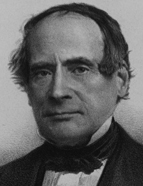

Despite this, it is important to reflect upon the significance of the publication in Paris of a work that, while describing the principal facts and episodes of Portuguese history in a light-hearted picturesque way, also highlighted the theme of the Inquisition, a topic Alexandre Herculano would explore some years later. In point of fact, in both the French and Portuguese editions, various compliments are paid to the young Portuguese writer and some passages are transcribed from his work, which began to be published in the same year.
While Herculano developed the more erudite line of Germanic influence in his methodological orientation, following the steps taken by Schaefer the previous decade, Denis reinforced and pointed to an alternative path - that of a popular, descriptive and non-problematizing history full of unique narrative episodes in the style of Augustin Thierry, or, as had happened in earlier works, using extracts from literary and dramatic sources. This second conception of historical writing was greeted with such enthusiasm that, decades later, Pinheiro Chagas would take a predominant role in the publication of História de Portugal desde os tempos mais remotos até à actualidade, escrita segundo o plano de F. Denis (History of Portugal from the most remote times to the current day, written according to the plan of F. Denis), 1867-74.
For all these reasons, and especially as he was a scholar and an expert user of literary and poetic sources and sources from other cultural areas, Ferdinand Denis does not represent a total break with the mythical historiographical past of the political-institutional traditions of the former regime, as Schaefer and Herculano did. He thus remains silent on the subject of the mythological nature of the 'Miracle of Ourique'; he partially reproduces the Auto (Record) of the Cortes of Lamego; he considers D. Afonso Henriques the main agent for obtaining independence (and not his nobility, as Herculano does). He lingers over and spends time on a wide-ranging study of the Middle Ages and the Modern Era and on their main political, military and literary facts. He enlarges the concept of history and opens it up "to areas until then despised" as well as to new general perspectives (Sérgio Campos Matos, Historiografia e memória Nacional., 1998, p. 234), thus following Herculano's reading of history in his Cartas sobre a História de Portugal (Letters about the History of Portugal), but never ceasing to be a divulger of culture. He wrote an encyclopaedic history of Portugal, not innovating but instead enriching historical knowledge with passages chosen from the best authors, chronicles and scholars. For a long time he was fascinated by the written expression of what he identified as Portuguese cultural originality and strove to "recover the memory of forgotten heroes" of the Portuguese overseas expansion, emphazing the importance of the Crónica da Guiné and transcribing and commenting on long passages from Zurara's work (Ferdinand Denis, Portugal pictoresco...vol. I, 1846, pp. 141-147).
